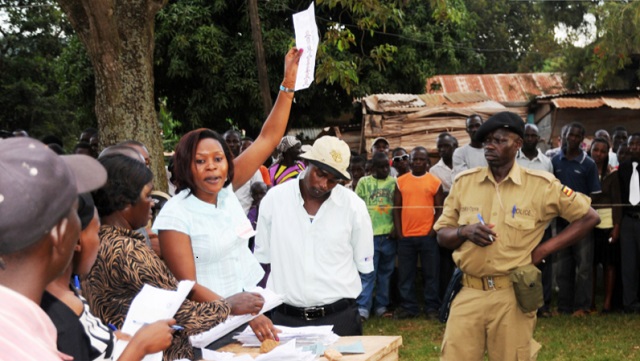
How a scientific election opens opportunities for the opposition in Uganda to perform better
THE LAST WORD | ANDREW M. MWENDA | There is a popular Chinese saying that a wise person looks for an opportunity in every problem while a stupid looks for a problem in every opportunity. This saying has been ringing in my head since government suggested that they will hold scientific elections i.e. all campaigning will be done electronically without mass rallies. Since then, opposition politicians and their cheerleaders on social and in traditional media have been biting their fingers complaining that this is yet another way in which President Yoweri Museveni’s government is trying to rig them out of the election.
I am always intrigued by the agonising tone of Uganda’s opposition and its supporters. For the last three decades, they have consistently and loudly claimed that elections in Uganda are never free and fair, that the ground is always tilted against them. Indeed, the leading opposition politician, Dr. Kizza Besigye, has said repeatedly that elections in Uganda are so unfair that they cannot act as a vehicle for change of power. It follows, therefore, that the new restrictions are not changing the substance of how elections are handled, only changing the form through which the muzzling of the opposition takes place during campaigns.
I am aware that holding public rallies has been an important vehicle through which the opposition is able to rally a mass political base and inspire many people to join its ranks. However, such open expression of support has always been a double aged sword. It exposes the extent of support for the opposition to government, which cracks down on them using the police and the military.
Secondly, Museveni knows that for most peasants, who constitute 70% of Uganda’s population, elections are not an opportunity to choose which person should gain power. Rather they are a moment for them to affirm who has power. So during election campaigns, he bundles Besigye on police trucks in full view of television cameras to demonstrate who actually has power.
Given the above realities, the opposition must, therefore, seek to participate in this election by identifying the opportunities that may be available through electronic campaigning, not by complaining. I believe that the electronic election is likely to provide them a great opportunity to improve their performance if they can seize it.
But first, a caveat: e-data shows that most Ugandans (90%) get their information from radio. This is a medium tightly controlled by the NRM. NRM politicians and their allies own most of the radio and television, making this a difficult medium for the opposition. Therefore, traditional media favour NRM in this kind of scientific election. But the opposition should stop looking at their disadvantages and turn their gaze at their opportunities in this electronic election.
Let us begin with basic facts. As of December 2019, there were more than 25 million telephone lines in Uganda. Given that our country has an estimated population of 43 million, 50% of whom are below 15 years, it means that the adult population of Uganda is about 20 million. Even accounting for the fact that many people have two telephone lines, and there are many people below 18 with telephones, it is possible that 90% of registered voters have access to a mobile phone. Therefore, a great opportunity to use SMS, robo calls etc. is available if only the opposition can see it and use it.
 The Independent Uganda: You get the Truth we Pay the Price
The Independent Uganda: You get the Truth we Pay the Price






You have argued many times before as you have done in this column,?but those arguments are flawed . You ignore the fact that among the main reasons Besigye and Bobi attract crowds is because of the way they appeal to voters. Why should they change what works better ? Okay, Gen Muntu is a good example of a candidate that ticks all the boxes of the kind you describe can attract moderates, let’s wait and see how he performs. Right? Don’t forget we had candidates like him before and performed very badly. Nobert Mao, Gen. Biraro, Bindandi Ssali etc. Again your point of museveni unleashing terror on Presidential candidates making voters scared and voting for m7 is not without flaws. Most terror was unleashed on candidates in 2006 and 2016; yet the opposition did well. In 2011 where there was a big introduction of money by m7 to buy votes, rather than violence, the opposition did not do well. All in all, the arguments in your column are flawed as I have shown above. Candidates should campaign openly. It works better for opposition.
For some;Elections are an outing otherwise i see no candidate defeating M7.